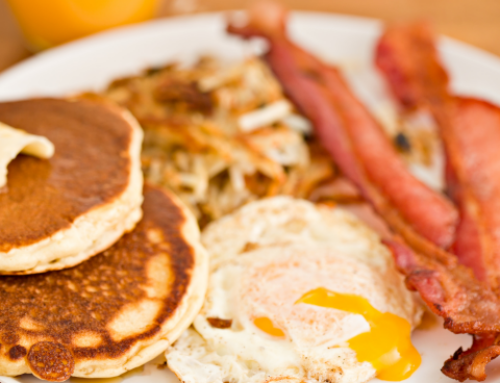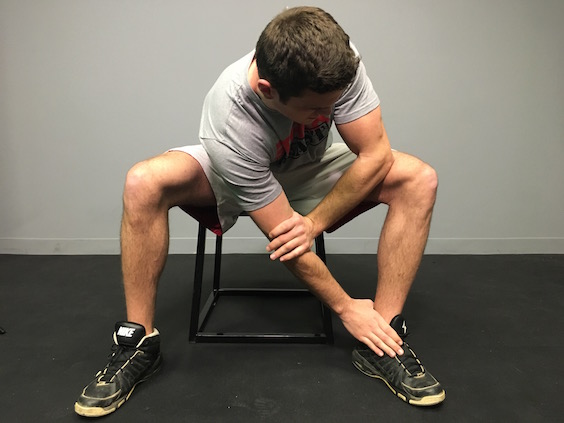How Alcohol Wreaks Havoc on Your Sleep
Despite alcohol’s well-known negative effects on athletic performance and recovery, surprisingly few athletes abstain from drinking, even at the highest levels of competition. College and professional athletes can be seen boozing into the wee hours of the night, chugging down multiple beers, tequila shots or vodka Red Bulls at the local watering hole.
Whenever I hear tales of these talented athletes engaging in liquor-induced festivities, I can’t help but wonder:
How much better would they be at their sport if they hit the sheets instead of the bars at night? Recent research indicates that athletes who do the latter could be significantly harming their performance on the field.
Just One Drink Impairs Your Sleep
A new study investigated the effects of alcohol on sleep and recovery in Finnish employees. The researchers rounded up 4098 subjects between the ages of 18 and 65 (mean age 45.1 years) working in a variety of blue- and white-collar jobs. On average, the subjects were middle-aged, slightly overweight, and had regular physical activity 2-3 times per week with the total weekly training amount being approximately 1 hour.
Here are some of the most important and interesting takeaways obtained from the study:
- A low alcohol intake (corresponding to 1.1 drinks per day, on average) reduced physiological recovery state that normally occurs during sleep by nearly 10%
- Moderate alcohol consumption (2.9 drinks per day) lowered restorative sleep quality by 24%
- High doses of alcohol (7.0 drinks per day) impaired recovery by almost 40%
- Being young or physically active doesn’t help prevent the negative effects of alcohol on recovery while you’re asleep
While this study looked at the effects of alcohol on sleep and recovery in non-athletes, the potentially detrimental effects for athletes become obvious when combined with what scientists have found about how sleep affects physical performance.
Sleep restriction negatively impacts strength, cardiorespiratory functioning, and psychomotor tasks that require accuracy and consistent performance. Conversely, significant improvements in sprint and reaction times, shooting accuracy as well as mood and vigor occur when athletes increase their sleep to 10 hours per day. These positive effects on performance have been documented across multiple sports, including football, basketball, tennis, and swimming.
What to Do With This Information
Whether you’re young or old, a competitive athlete or a weekend warrior, frequent drinking is one of the worst things you can do to your body.
If you want to maximize your athletic ability on the field or in the weight room, abstaining from alcohol could unlock a higher level of performance for you. You will sleep sounder, recover quicker, run faster, and feel better overall.
The best part?
You won’t need to take a pill or drink a shake to witness any of these benefits. The only thing you need to do is stay sober.
RECOMMENDED FOR YOU
MOST POPULAR
How Alcohol Wreaks Havoc on Your Sleep
Despite alcohol’s well-known negative effects on athletic performance and recovery, surprisingly few athletes abstain from drinking, even at the highest levels of competition. College and professional athletes can be seen boozing into the wee hours of the night, chugging down multiple beers, tequila shots or vodka Red Bulls at the local watering hole.
Whenever I hear tales of these talented athletes engaging in liquor-induced festivities, I can’t help but wonder:
How much better would they be at their sport if they hit the sheets instead of the bars at night? Recent research indicates that athletes who do the latter could be significantly harming their performance on the field.
Just One Drink Impairs Your Sleep
A new study investigated the effects of alcohol on sleep and recovery in Finnish employees. The researchers rounded up 4098 subjects between the ages of 18 and 65 (mean age 45.1 years) working in a variety of blue- and white-collar jobs. On average, the subjects were middle-aged, slightly overweight, and had regular physical activity 2-3 times per week with the total weekly training amount being approximately 1 hour.
Here are some of the most important and interesting takeaways obtained from the study:
- A low alcohol intake (corresponding to 1.1 drinks per day, on average) reduced physiological recovery state that normally occurs during sleep by nearly 10%
- Moderate alcohol consumption (2.9 drinks per day) lowered restorative sleep quality by 24%
- High doses of alcohol (7.0 drinks per day) impaired recovery by almost 40%
- Being young or physically active doesn’t help prevent the negative effects of alcohol on recovery while you’re asleep
While this study looked at the effects of alcohol on sleep and recovery in non-athletes, the potentially detrimental effects for athletes become obvious when combined with what scientists have found about how sleep affects physical performance.
Sleep restriction negatively impacts strength, cardiorespiratory functioning, and psychomotor tasks that require accuracy and consistent performance. Conversely, significant improvements in sprint and reaction times, shooting accuracy as well as mood and vigor occur when athletes increase their sleep to 10 hours per day. These positive effects on performance have been documented across multiple sports, including football, basketball, tennis, and swimming.
What to Do With This Information
Whether you’re young or old, a competitive athlete or a weekend warrior, frequent drinking is one of the worst things you can do to your body.
If you want to maximize your athletic ability on the field or in the weight room, abstaining from alcohol could unlock a higher level of performance for you. You will sleep sounder, recover quicker, run faster, and feel better overall.
The best part?
You won’t need to take a pill or drink a shake to witness any of these benefits. The only thing you need to do is stay sober.











